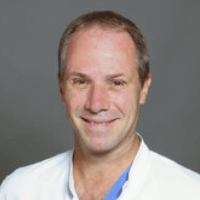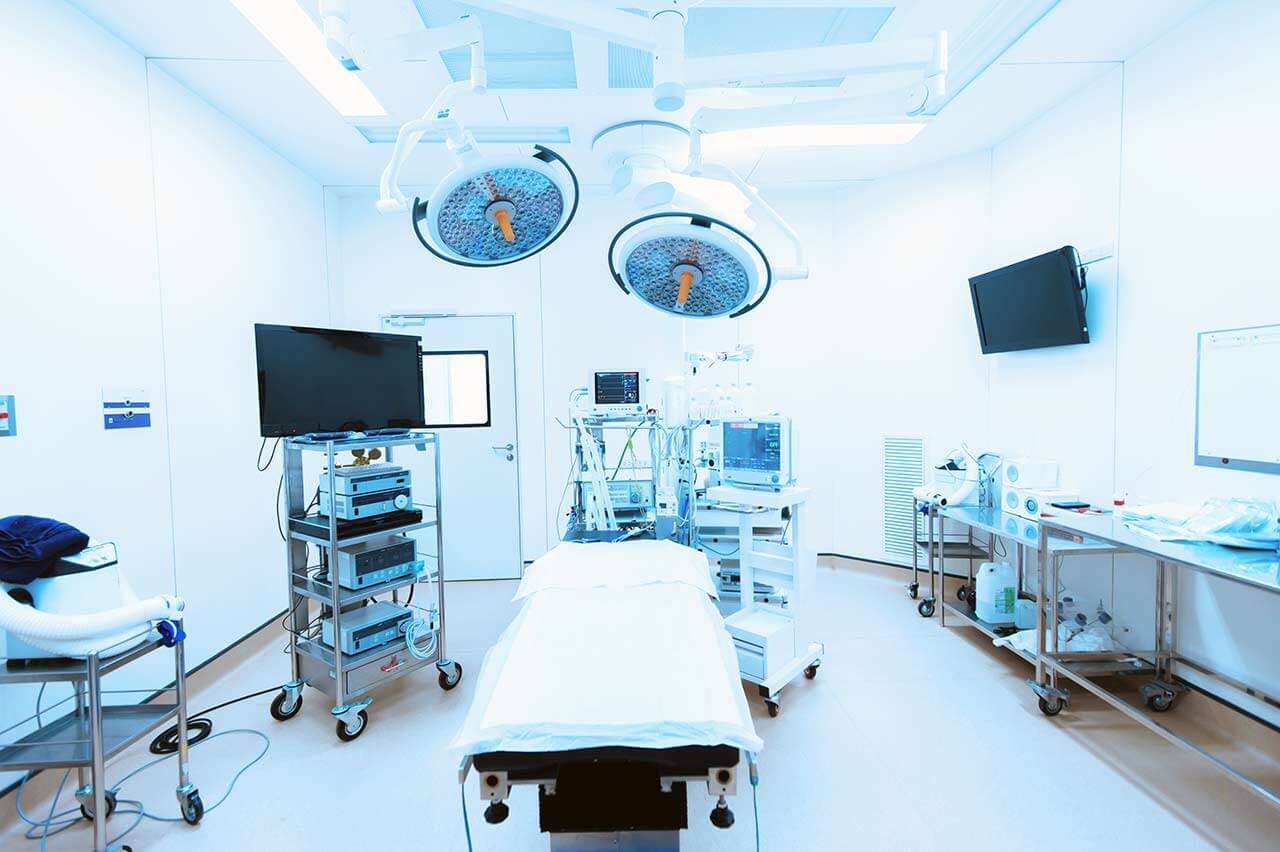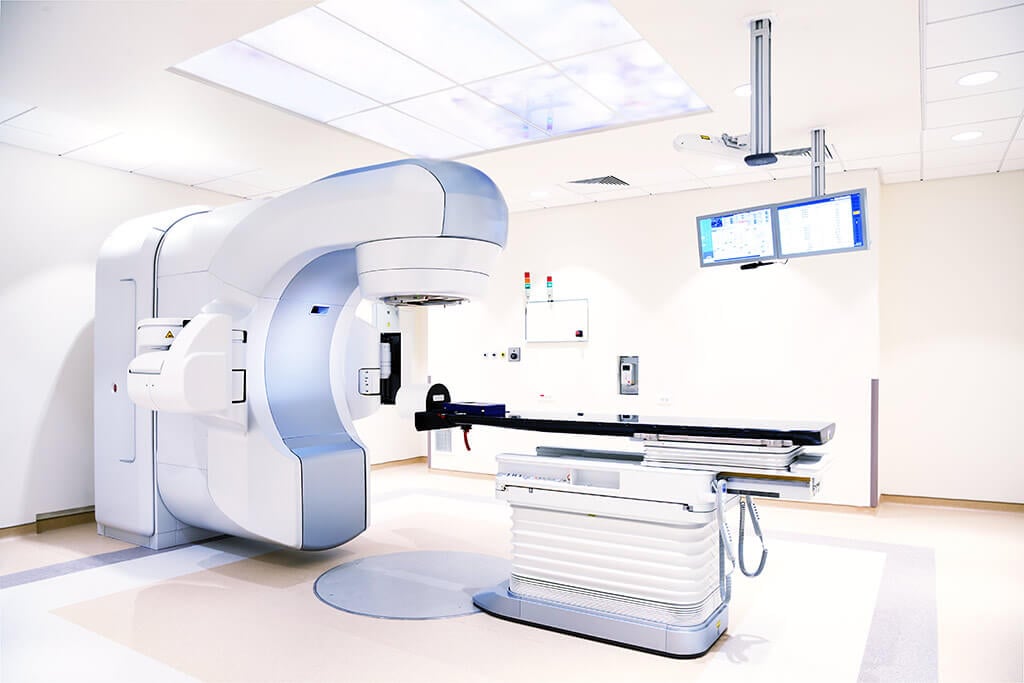
The program includes:
- Initial presentation in the clinic
- clinical history taking
- physical examination
- laboratory tests:
- complete blood count
- general urine analysis
- biochemical analysis of blood
- TSH-basal, fT3, fT4
- indicators of inflammation
- indicators blood coagulation
- doppler/ duplex receptacles of the upper extremities
- angiography/ angio-MRI
- arm vessels angioplasty
- symptomatic treatment
- cost of essential medicines
- nursing services
- full hospital accommodation
- elaboration further recommendations
Required documents
- Medical records
- Duplex scanning of the subclavian arteries, MRI/CT scan (if available)
Service
You may also book:
 BookingHealth Price from:
BookingHealth Price from:
About the department
The Department of Interventional Radiology, Neuroradiology and Nuclear Medicine at the Catholic Clinic Koblenz-Montabaur provides the full range of medical services in the fields of its competence. The department has equipment of the latest generation for performing various imaging tests, including CT and MRI scans, classical X-ray scans, fluoroscopy, mammography, sonography, phlebography, myelography, and angiography. Nuclear medicine specialists are responsible for radionuclide diagnostics, with particular emphasis on performing scintigraphy and single-photon emission computed tomography (SPECT). The department also performs many image-guided interventional therapeutic procedures. The department's interventional radiologists successfully perform endovascular interventions for abdominal and thoracic aortic aneurysms, peripheral arterial occlusive disease, bile duct stenosis, abscesses, malignant tumors, etc. In the field of interventional neuroradiology, the key focus is on the endovascular treatment of carotid stenosis, stroke, chronic back pain, brain tumors, and vascular malformations in the brain. The key to achieving high treatment efficiency rates in the department is the use of state-of-the-art equipment and the professionalism of doctors. Due attention is paid to compliance with radiation protection standards and the creation of comfortable conditions for patients. The department is headed by PD Dr. med. Sascha Herber.
An essential condition for the provision of high-quality medical care in the fields of radiology, neuroradiology, and nuclear medicine is the availability of state-of-the-art equipment. The department's doctors therefore have all the necessary equipment at their disposal that allows them to perform high-precision examinations and therapeutic procedures under imaging guidance. The diagnostic rooms at the medical facility are equipped with three 1.5 Tesla magnetic resonance imaging scanners, a 64-slice computed tomography scanner with the ability to perform cardiac CT, two 128-slice computed tomography scanners, a device for head and neck digital volumetric tomography, two systems for angiography and a device for digital subtraction angiography, three digital X-ray machines, four mobile classical X-ray machines, a digital mammography system, and other devices. The department also has modern gamma cameras for scintigraphy and single-photon emission computed tomography.
The department's team of interventional radiologists specializes in sparing endovascular procedures. For this purpose, two progressive hybrid operating rooms are available here. Doctors most often carry out interventional treatment for pathological changes in the blood vessels (occlusions and stenoses), chronic back pain, malignant tumors, bile duct stenosis, abscesses, and internal bleeding. The most popular procedure is embolization, which is often performed for malignant tumors. The essence of the procedure is the image-guided placement of microspheres (emboli), coils, or special liquids (Histoacryl, Onyx, or Squid) into the blood vessel supplying the tumor using catheter-based techniques, as a result of which this blood vessel is blocked. The tumor is thus deprived of blood supply, which leads to its involution. The department also often performs percutaneous transhepatic cholangiostomy followed by stent implantation. This procedure is indicated for patients with bile duct stenosis caused by benign or malignant neoplasms. The doctor makes a puncture with a needle in the intercostal space in the liver area and delivers a drainage catheter through it to the affected bile duct under imaging guidance. This interventional procedure allows bile to be brought out through the catheter, after which a special stent is implanted in the narrowed section of the bile duct, preventing its recurrent stenosis.
Interventional neuroradiological procedures are an integral part of the department's clinical practice. Doctors in this area have rich experience in providing low-traumatic treatment for carotid artery stenosis, stroke, brain tumors, vascular malformations in the brain, chronic back pain, and other pathologies. Carotid artery stenting is one of the most requested procedures in this area. Stent implantation is performed using endovascular techniques under local anesthesia and imaging guidance. During the therapeutic procedure, the narrowing of the lumen of the carotid artery due to the formation of atherosclerotic plaques on its walls is eliminated. The goal of treatment is to restore the patency of the carotid artery, thereby normalizing the blood supply to the brain. This helps prevent the development of an ischemic stroke that may lead to serious consequences for human health or even death.
The department's neuroradiologists also offer effective interventional treatments for chronic back pain, namely periradicular therapy and facet joint infiltration. These two treatment options are very similar and involve the targeted CT-guided administration of analgesics into the pathological focus. The only difference is that in periradicular therapy, injections are made directly into the nerve roots, while in facet joint infiltration, injections are made into the facet joints. The duration of the procedures does not exceed 15 minutes. Interventional treatment for back pain is highly effective. Whenever required, it can be repeated several times. Imaging guidance using computed tomography allows for the safety of therapeutic manipulations for the patient.
The department also offers a wide range of services in the field of nuclear medicine. The specialists in this area carry out diagnostic tests and therapeutic procedures using radiopharmaceuticals. These are highly informative examinations of the brain, thyroid gland, salivary glands, lungs, kidneys, skeleton, bladder, heart (myocardial scintigraphy) at rest and under stress (physical or pharmacological stress). For early detection of tumor metastases, special labeled antibodies are used.
The department's key clinical focuses:
- Interventional radiology
- Interventional treatment for vascular pathologies
- Embolization
- Angiography and percutaneous transluminal angioplasty
- Transjugular intrahepatic portosystemic shunt (TIPS)
- Stent implantation for portal hypertension in liver cirrhosis
- Percutaneous transhepatic cholangiostomy followed by stent implantation
- Stent implantation for abdominal and thoracic aortic aneurysms
- Interventional treatment for benign and malignant tumors
- Transarterial chemoembolization
- Percutaneous ethanol injections
- Radiofrequency ablation
- Microwave ablation
- Punctures for drainage of abscesses in the abdominal and thoracic cavities
- Port system implantation
- Cava filter implantation
- Percutaneous endoscopic gastrostomy
- Interventional treatment for vascular pathologies
- Interventional neuroradiology
- Carotid artery stenting
- Thrombolysis
- Embolization for brain tumors and vascular malformations in the brain
- Cerebral sinus recanalization followed by angioplasty and stent implantation
- Percutaneous vertebroplasty (a minimally invasive procedure for vertebral fractures)
- Interventional treatment for chronic back pain: periradicular therapy and facet joint infiltration
- Nuclear medicine
- Single-phase and multiphase skeletal scintigraphy, including additional SPECT tests of individual sections of bones to search for metastases in cancer staging, diagnosing inflammatory or traumatic bone lesions
- Perfusion and ventilation lung scintigraphy followed by SPECT and quantitative assessment of lung functions as part of the preoperative examination of patients with lung tumors and after a previous pulmonary embolism
- DAT scan with brain SPECT in the diagnosis of Parkinson's disease
- Preoperative imaging of sentinel lymph nodes (for example, in breast or vulvar tumors)
- Isotope nephrograms as part of functional kidney diagnostics with the determination of MAG3 clearance and before planned interventions for renal artery stenosis
- Myocardial scintigraphy at rest and under stress in the diagnostics of coronary heart disease before and after diagnostic coronary angiography and when planning coronary artery bypass grafting
- Thyroid scintigraphy
- Other diagnostic and therapeutic services
Curriculum vitae
Higher Education and Professional Career
- 06.1988 - 09.1994 Medical studies at the Universities of Luebeck and Mainz.
- 10.1994 Doctorate, University of Mainz.
- 05.1995 - 02.1997 Intern, Department of Internal Medicine, St. Johannis Hospital.
- Since 02.1997 Assistant Physician, Department of Radiology, University Hospital.
- 10.11.1999 Doctoral thesis defense, Department of Gynecology, University of Mainz.
- 16.10.2002 Board certification in Diagnostic Radiology.
- 04.2003 - 12.2007 Senior Physician in the Department of Diagnostic and Interventional Radiology at the University Hospital Mainz.
- Since 01.01.2008 Head of the Department of Interventional Radiology, Neuroradiology and Nuclear Medicine at the Catholic Clinic Koblenz-Montabaur.
Photo of the doctor: (c) Katholisches Klinikum Koblenz - Montabaur
About hospital
The Catholic Clinic Koblenz-Montabaur is a modern medical facility with an excellent reputation in Germany and abroad. The medical center is an academic clinic of the University Hospital Mainz, which gives patients the opportunity to take advantage of scientific advances and innovative treatments. The clinic has the widest possibilities for providing effective medical care to patients with both common and especially complex and rare pathologies. In December 2017, the clinic was certified in accordance with DIN EN ISO 9001:2015 standards, and in 2020, it was successfully recertified, which is a confirmation of the high quality of medical service. The clinic has 20 departments with 17 highly specialized centers integrated into them. The bed fund of the medical facility includes 657 beds. More than 32,000 inpatients and about 133,000 outpatients receive medical care here annually.
Many medical specialties are available at the clinic, including general and abdominal surgery, bariatric surgery, vascular surgery, thoracic surgery, cardiology, pulmonology, gynecology, urology, neurology, orthopedics, traumatology, radiology, nuclear medicine, and others. Each of the medical specialties is represented by an experienced team of doctors and nursing staff who do their best to restore the patient's health. Doctors of various medical fields work in close cooperation, which allows for an interdisciplinary approach to solving health problems.
The pride of the clinic is the advanced technical base, which plays an important role in accurate examinations and effective treatment. For example, the operating rooms at the clinic are equipped in accordance with the current requirements of European medicine, due to which most surgical interventions are performed using sparing techniques, including laser surgery, video-assisted thoracoscopic surgery, arthroscopy, endovascular and hybrid surgical techniques, etc.
Despite the clinic's high-tech infrastructure, there is an atmosphere of understanding, sympathy, and respect for the patient. The medical team shows a humane attitude towards patients and takes care of their comfort throughout the entire period of treatment. Doctors devote enough time to personal communication with patients, which makes it possible to take into account their individual needs and wishes during the therapeutic process.
Photo: (с) depositphotos
Accommodation in hospital
Patients rooms
The patients of the Catholic Clinic Koblenz-Montabaur live in comfortable single and double rooms with light colors and modern design. Each patient room has an ensuite bathroom with a shower and a toilet. The furnishings of a standard patient room include an automatically adjustable bed, a bedside table, a wardrobe, a table and chairs for receiving visitors, and a TV. The telephone is provided for a fee. Wi-Fi is available upon request.
The clinic also offers enhanced comfort rooms corresponding to the level of a five-star hotel. These patient rooms are more spacious and have a sophisticated design. The bathroom of the enhanced comfort rooms has a set of toiletries, changeable towels, and a bathrobe.
Meals and Menus
The patient and the accompanying person can choose meals from three menus daily. If, for some reason, you do not eat all the foods, you will be offered an individual menu. Please inform the nursing staff of your dietary preferences prior to treatment.
Patients living in enhanced comfort rooms are additionally offered free soft drinks, coffee, tea, desserts, and fresh fruits.
Further details
Standard rooms include:
Religion
A Catholic liturgy is held every Sunday morning in the church at the clinic. The divine liturgy is also broadcast on the clinic's internal TV channel.
Accompanying person
Your accompanying person may stay with you in your patient room or at the hotel of your choice during the inpatient program.
Hotel
You may stay at the hotel of your choice during the outpatient program. Our managers will support you for selecting the best option.





